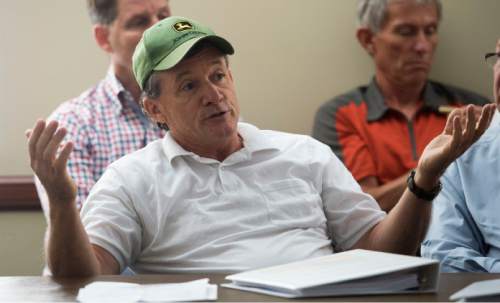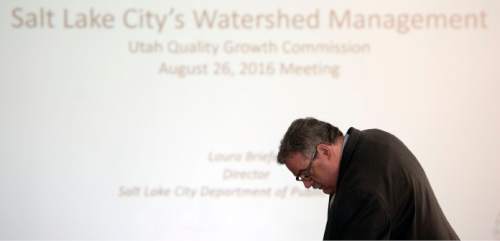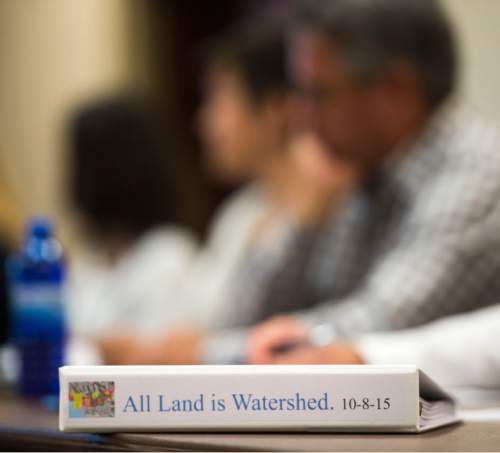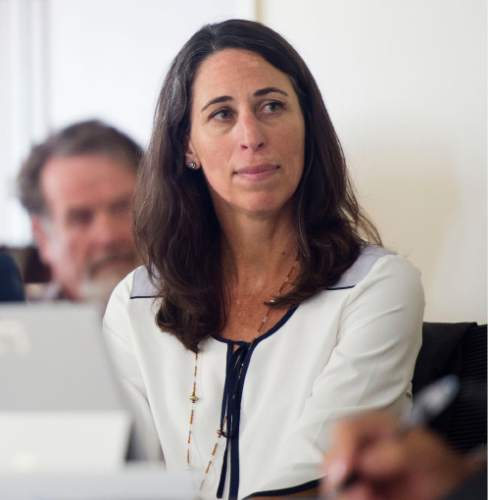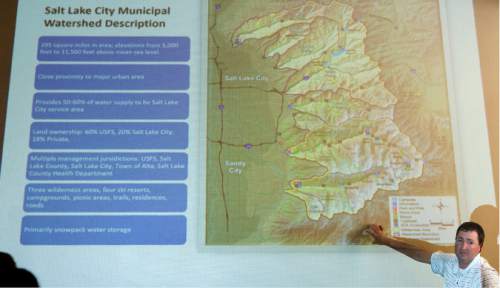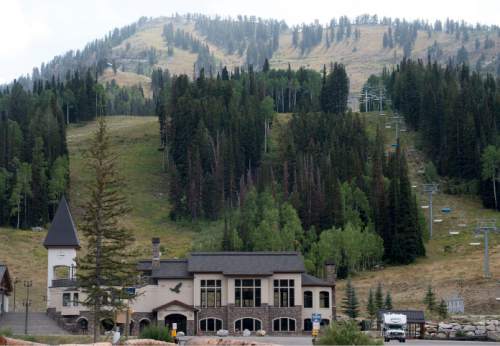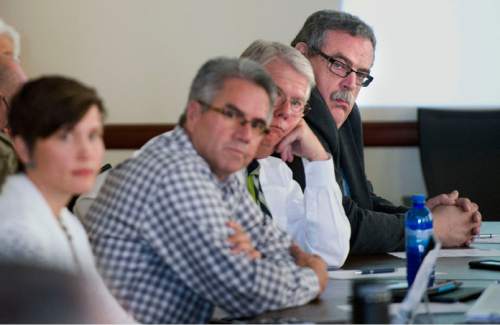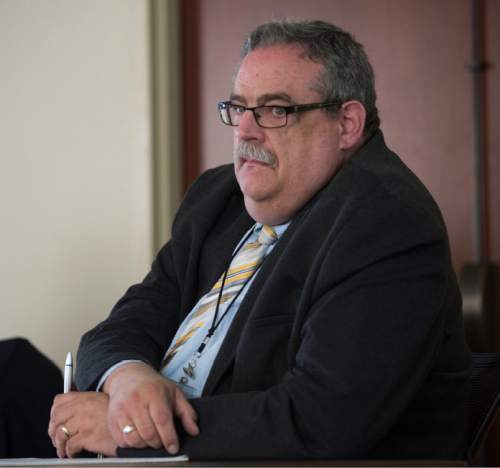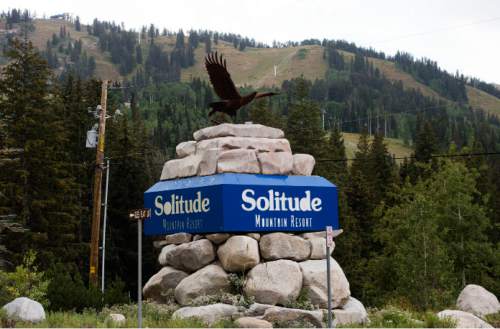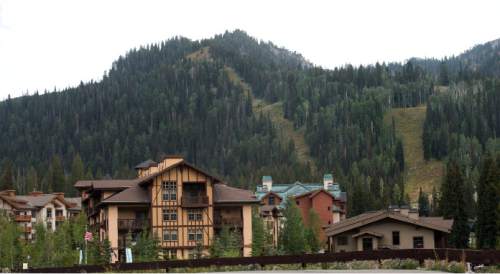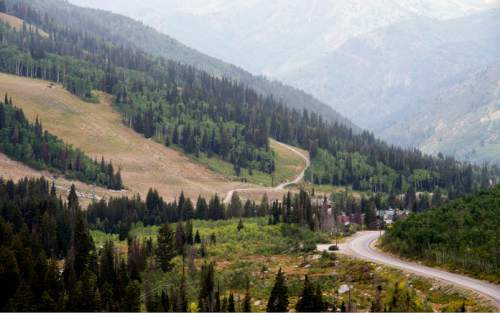This is an archived article that was published on sltrib.com in 2016, and information in the article may be outdated. It is provided only for personal research purposes and may not be reprinted.
More verbal sparring took place Friday in the perpetual battle between Salt Lake City water officials and private landowners who claim they can't develop their property in the Cottonwood canyons because of the city's overzealous use of its watershed-protection powers.
The forum for this latest debate was the Utah Quality Growth Commission, which recently took up the watershed-management issue, anticipating its input might be sought if the Legislature in its next session reviews the authority Salt Lake City has exercised for a century over canyon lands outside its boundaries.
The commission's involvement sparked controversy of its own.
"Attack on the Watershed" said a Save Our Canyons email alert asking members to turn out against "a little known state organization struggling for funding and battling to remain relevant [that] is taking aim at Salt Lake City's watershed protections."
The commission was authorized by statute in 1999 to provide planning and training assistance to local governments, recommend growth principles and advise the governor and Legislature on growth-management issues.
It also administers the state's LeRay McAllister Critical Land Conservation Fund. The board is overseen by Chairman David Mansell, a real estate agent, and Logan City Councilwoman Holly Daines, according to its website.
Commission staffer John Bennett said in a memo to members that even though he had "been accused of being in the pocket of developers," he believed the commission was justified in speaking up because of its "responsibility to look at how to promote growth on a quality basis and how to conserve lands."
"The reason I was willing to go down this path is that this commission is uniquely charged at looking at the tension between conservation and development," Bennett added.
Adherence to parliamentary procedure broke down several times during the tension-filled meeting.
Canyon property owners Evan Johnson and Norm Henderson, irrigation company president Paul Southam and Dave Robinson, a negotiator for several property owners and Republican candidate for Salt Lake County mayor, laid out a litany of complaints about how city water officials unfairly stymied their ability to use their lands.
Johnson protested that the city's "water empire" has prevented him from buying downstream water rights and transferring them to his canyon lands, potentially raising their value enormously.
Henderson said he was particularly bothered that common people like Johnson get shortchanged while a company like Deer Valley, owner of Solitude Mountain Resort, could get extremely valuable base property in a trade as part of recently proposed Mountain Accord legislation to plan for the future of the central Wasatch Mountains.
"If we're going to limit development," he said, "let's do it fairly and not be giving what appear to be special favors and trade-offs."
Salt Lake City Councilwoman Erin Mendenhall bristled at the property owners' complaints.
"It feels like some sour grapes over decisions you didn't like in the Mountain Accord process and failed litigation efforts," she said of the landowners' arguments, contending the Quality Growth Commission had merely given them "a place to have a pulpit."
Bennett said he felt a review of Salt Lake City's ability to manage its watershed was warranted because the city had not updated its watershed ordinance since 1991, nor held any hearings to gain public input.
The city also doesn't have a fire-mitigation plan to protect vegetation that reduces erosion within the watershed, he added.
Laura Briefer, director of the city's department of public utilities, disputed Bennett's characterization that the city was discouraging public participation by holding onto old ordinances despite changing times.
The city has participated in numerous public-involvement processes over the years, she said, citing Wasatch Canyons Tomorrow and the county's development of an overlay zone for the foothills, canyons and mountain resorts.
"We have gone through process after process. All of these processes have had incredible public participation," Briefer added. "It's unfair to say we haven't."
The back and forth prompted Mike Styler, executive director of the state Department of Natural Resources, to encourage the two sides to work out their differences.
He suggested the city buy out the property owners using funds collected monthly from the bills of 350,000 water customers in Salt Lake City and along the east bench out to Sandy.


